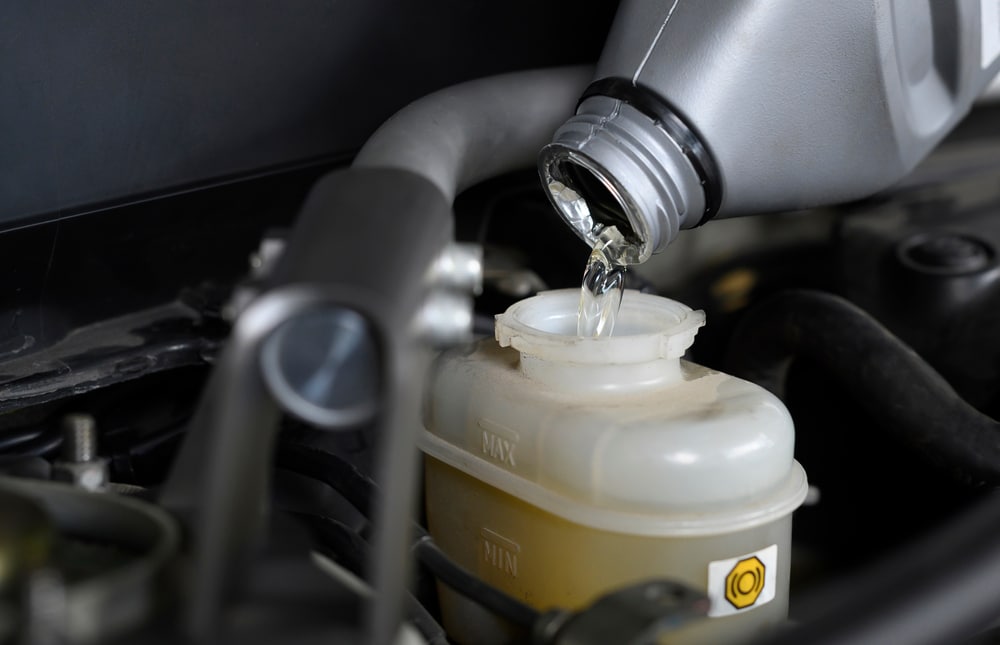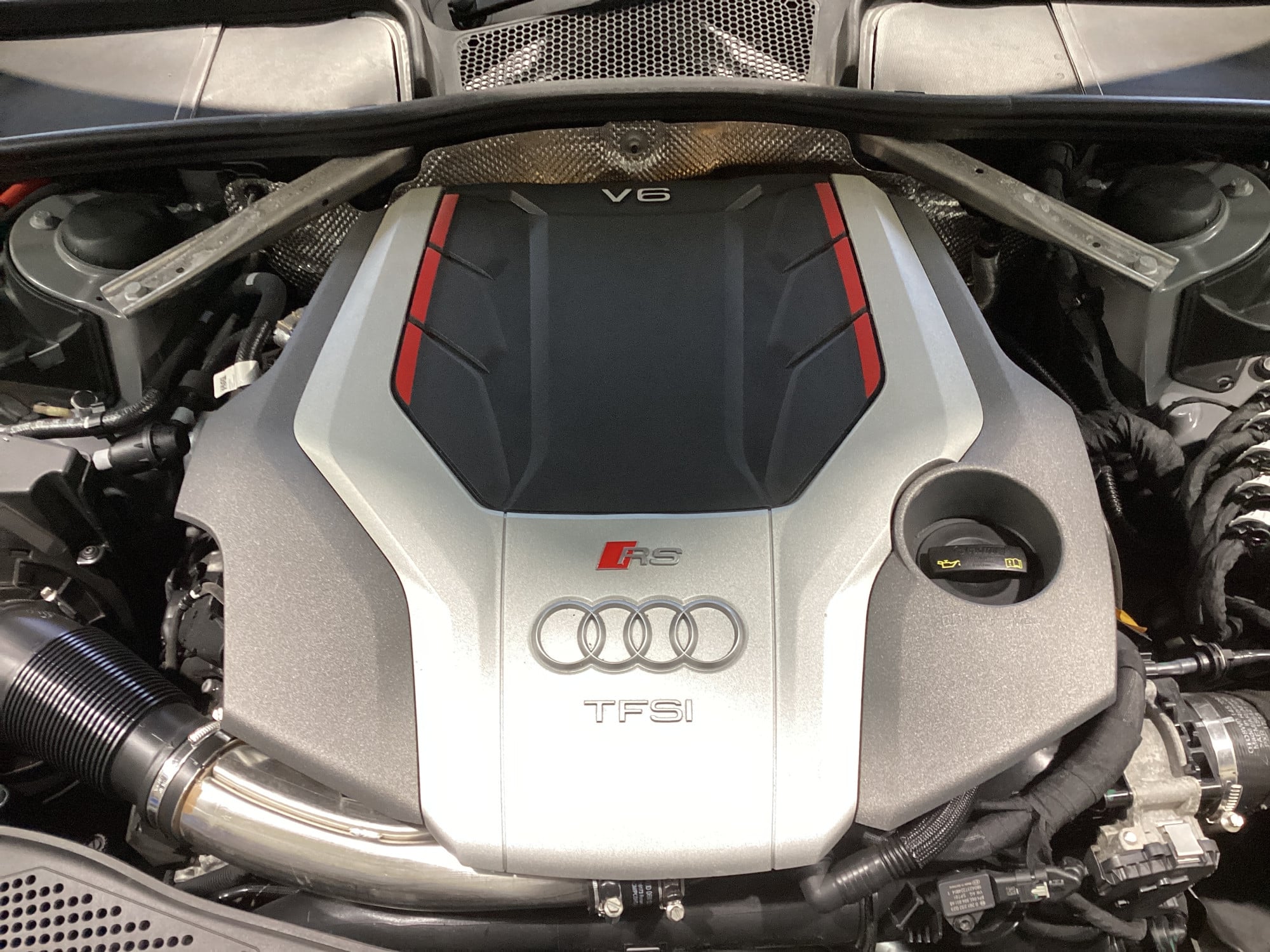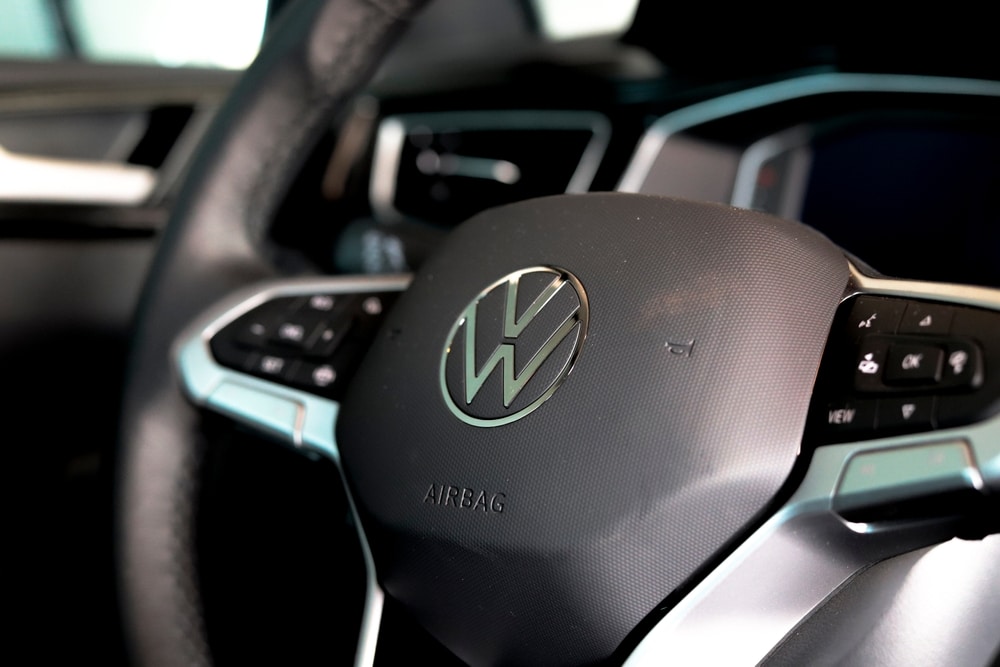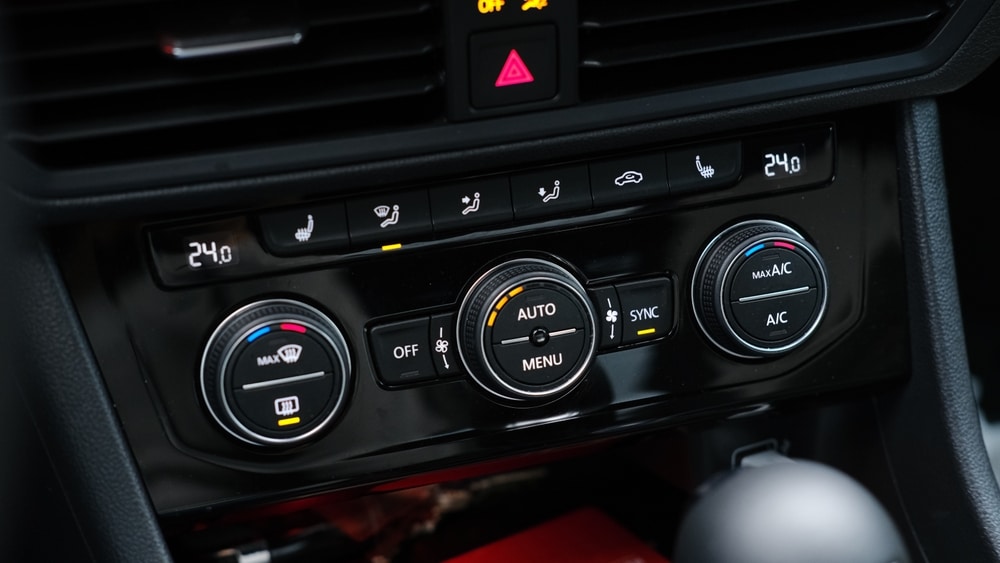Brake Fluid
Brake fluid isn’t something most drivers think about day to day, but it’s a vital link between pressing your brake pedal and bringing your car to a stop. Over time, this fluid naturally absorbs moisture, which reduces its ability to transfer pressure effectively and can lengthen your stopping distance during sudden braking.
That’s why routine brake fluid checks and replacements are more than routine maintenance – they’re crucial for your safety.
At RS Autotechnik in Dursley, we provide professional brake fluid services that follow your vehicle manufacturer’s guidelines, ensuring your brakes remain dependable. Drivers from Bristol, Tetbury, and Gloucester trust our team for expert care. Call 01453 796345 today to arrange a brake fluid inspection or change and keep your braking system performing as it should.
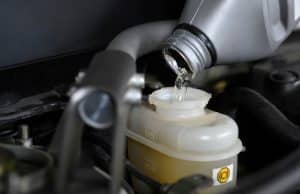
Understanding the Role of Brake Fluid
Brake fluid is at the heart of your braking system, ensuring the brake pedal feels firm, protecting vital components, and helping your car stop exactly when you need it to.
This specialist hydraulic fluid transfers the pressure from your foot on the brake pedal to the wheels, allowing the vehicle to slow or stop. Because it’s incompressible, brake fluid can deliver that force instantly and accurately. When you press the pedal, it sends hydraulic pressure through the brake lines to components such as callipers and wheel cylinders, pushing the brake pads or shoes into contact with the brake discs or drums.
Beyond transferring pressure, brake fluid shields internal components from corrosion and provides essential lubrication. It must withstand high heat and extreme pressure while staying stable. Using the correct fluid in good condition is key to keeping your braking system dependable.
How Brake Fluid Powers Your Braking System
Let’s look at how brake fluid really does its job.
When you press the brake pedal, you aren’t moving a lever directly onto the wheels. Instead, your foot engages a master cylinder, which compresses the brake fluid. This pressure is then transmitted through a series of brake lines to the callipers or wheel cylinders, depending on the design of your vehicle.
The result is that the brake pads or shoes are pressed firmly against a brake disc or drum, creating the friction needed to slow or stop your car. When brake fluid is in optimal condition, it remains incompressible, ensuring that this pressure transfer happens instantly and consistently, giving you the reliable braking feel you expect.
But the fluid’s function goes beyond basic braking. It must continue to work under extreme temperatures and pressures, while also enabling modern safety features like ABS and electronic stability systems. Even though it’s a small component, brake fluid is doing an essential job every time you brake.
Finding Your Car’s Brake Fluid Reservoir
If you’ve ever opened your bonnet and noticed a small, semi-transparent plastic container near the back of the engine bay, usually on the driver’s side, that’s likely the brake fluid reservoir.
Inside the reservoir is a rubber seal or diaphragm that prevents moisture and air from entering the system. This is crucial, as brake fluid gradually absorbs water over time, which can reduce its ability to transmit pressure effectively. The reservoir’s translucent casing allows a quick visual check of fluid levels without removing the cap. However, to properly inspect the fluid’s colour and quality, the cap has to be removed by a technician.
While it’s only small, the brake fluid reservoir is an excellent indicator of your braking system’s condition. Any noticeable drop in fluid level or change in its appearance should be taken seriously and checked by professionals like the team at RS Autotechnik.
Different Brake Fluid Types Explained
Yes, there are several brake fluid types, and choosing the correct one is essential to keep your braking system working at its best. Brake fluids are not interchangeable, and using the wrong type could lead to damaged components or weaker braking performance.
Here’s an overview of the main types, explained simply:
- DOT 3 Brake Fluid – A glycol-based fluid with a lower boiling point. Common in older cars that don’t have advanced braking systems. It’s hygroscopic, meaning it absorbs moisture over time.
- DOT 4 Brake Fluid – Widely used in today’s vehicles. It has a higher boiling point than DOT 3, making it ideal for modern systems with features like ABS or traction control. Like DOT3, it also absorbs moisture and needs regular replacement.
- DOT 5 Brake Fluid – A silicone-based fluid that does not absorb water. Typically reserved for specialist or classic vehicles. It cannot be mixed with DOT 3 or DOT 4, as this can damage seals or cause brake failure.
- DOT 5.1 Brake Fluid – Offers similar high performance to DOT 5 but is glycol-based like DOT 3 and 4, making it suitable for high-heat conditions.
At RS Autotechnik in Dursley, we ensure your car receives the correct brake fluid type for its system, giving you peace of mind on every journey.
What Impacts the Quality of Brake Fluid?
Brake fluid may seem durable, but it’s not immune to wear and deterioration. Over time, factors such as heat, moisture, and contaminants begin to affect its ability to perform. If it isn’t checked or replaced at the correct intervals, your braking system could become less responsive and, in some cases, unsafe.
Here are the main factors that influence the quality of brake fluid:
Moisture Absorption – Brake fluid is hygroscopic, meaning it naturally absorbs moisture from the air, even through tiny pores in hoses and seals. As water content rises, the boiling point of the fluid drops, making vapour lock more likely during heavy braking. Vapour lock is dangerous because the bubbles that form reduce the fluid’s ability to transmit pressure.
Heat and Pressure – Braking generates extreme heat. Over time, these high temperatures chemically break down the fluid, leaving it unstable and more likely to fail during intense braking conditions.
Chemical Stability and Additives – Quality brake fluids are formulated with corrosion inhibitors and agents that protect rubber seals. As the fluid ages, these additives lose their effectiveness, leaving components vulnerable.
Contamination – Small fragments of rubber, rust particles, or even traces of the wrong fluid can contaminate the system, damaging seals and reducing braking efficiency.
Old or Incorrect Fluid – Using an incorrect grade, or fluid that hasn’t been changed when required, can affect systems like ABS and traction control. It may seem fine in normal driving, but emergency stops can become unpredictable.
Brake fluid has a limited lifespan. At RS Autotechnik in Dursley, we test the condition of your fluid during servicing and advise when a replacement is needed to keep you safe on the road.
Brake Fluid Warning Signs Every Driver Should Know
Unlike some other components, brake fluid doesn’t have its own dashboard warning light, which means staying ahead of problems is essential. Regular servicing at RS Autotechnik in Dursley ensures your brake fluid remains in peak condition and helps prevent hidden issues from compromising your safety.
Watch out for these common signs that a brake fluid check is needed:
- A Spongy or Unresponsive Pedal – If your brake pedal feels softer than usual or requires extra effort to press, this could signal that moisture or air is affecting the fluid’s ability to transmit pressure effectively.
- Warning Lights – Some vehicles may display ABS or brake system warning lights when fluid levels are low or when pressure is uneven. A professional inspection is vital if these appear.
- Burned Smell – If, upon removing the reservoir cap, the fluid gives off a burnt or chemical-like odour, it’s likely deteriorating and needs replacing.
- Dark or Cloudy Fluid – Healthy brake fluid is clear or lightly coloured. Discolouration or cloudiness suggests contamination from rust, debris, or moisture.
If you notice any of these issues, contact RS Autotechnik for a thorough brake fluid inspection to ensure your braking system stays responsive and safe.
What Happens If You Neglect Your Brake Fluid
Brake fluid problems rarely become obvious straight away, which makes them particularly risky. Because the fluid deteriorates slowly, you might not notice a reduction in performance until it compromises your braking safety.
As brake fluid absorbs moisture or breaks down under heat and pressure, its ability to transmit hydraulic force weakens. This can result in a soft brake pedal, longer stopping distances, or even sudden brake fade during emergency stops. Over time, degraded fluid can also corrode internal components like seals and callipers, leading to costly repairs.
In severe cases, neglected brake fluid can cause complete brake failure, especially under heavy braking when the fluid boils and vapour bubbles form. These bubbles prevent the pressure from reaching the brake pads or shoes effectively, leaving your vehicle unable to stop as expected.
Regular servicing and timely brake fluid changes are the simplest ways to avoid these risks. At RS Autotechnik in Dursley, we check and replace brake fluid to the manufacturer’s exact specifications, ensuring your braking system remains responsive and safe.
Why Choose RS Autotechnik for Brake Fluid Checks
Brake fluid gradually degrades, absorbing moisture and losing its ability to perform under pressure. Left too long, it can lead to brake fade or, in extreme cases, complete brake failure. Because these changes happen silently, many drivers don’t notice until their braking performance is already compromised. That’s why regular brake fluid checks are essential for your safety.
At RS Autotechnik in Dursley, we provide professional brake fluid changes using the exact specification recommended by your vehicle’s manufacturer. Our experienced technicians inspect the condition of your brake fluid during every service and replace it when needed to maintain peak braking performance. You’ll get the same high quality as a main dealer – but at far better value.
Why book with RS Autotechnik?
✔ We always follow manufacturer guidelines
✔ Our technicians are highly trained and detail-focused
✔ Brake fluid is checked as part of every routine service
✔ All work is covered by a 12-month parts and labour guarantee
If it’s been a while since your last brake fluid change, or if your brakes feel less responsive, call 01453 796345 today to book your service. We’ll help keep your braking system safe and reliable.
